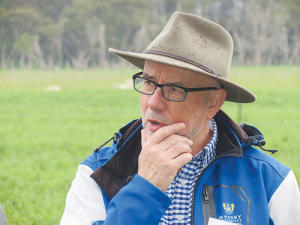Except for veterinary science, all Massey University agricultural academic courses are now in one school – the School of Agriculture headed by Professor Peter Kemp.
He says it is exciting to have got all the agriculture and resources and staff into one school, also including animal science.
The new arrangement has the components of the former school of agriculture becoming part of a much larger school including agronomy and farm management, soils, the Massey farms and all aspect of horticulture.
“So we are better integrated and able to be more strategic across the whole range of agriculture than perhaps in the past. It’s not like we’ve done a bad job, but by getting synergy across the whole range of agricultural activity it will be a better deal for students. There will be no reason why an animal science student won’t see agronomy and soil management as part of what they may be doing.”
Kemp says in the past a student may have had second thoughts about going into another ag related institute in another building, but no longer.
And the change will also be positive for the wider primary sector.
“It’s part of Massey improving its ability to deal with the primary sector – the one-stop shop approach if you like. Everyone including the environmental side will be in this new ag school. It will be a lot easier for all the sectors, be it horticulture, dairy and sheep and beef, to know who they are dealing with.”
Kemp says ag student numbers at Massey seem set to remain static this year: there is no sign of them being up and they may possibly be slightly down -- disappointing given that the agricultural sector is doing pretty well.
“Sometimes we get this knee-jerk reaction. People may feel dairy may be down a bit but the reality is that jobs don’t go away. The professional jobs you get with a degree from Massey are always still there.”

















